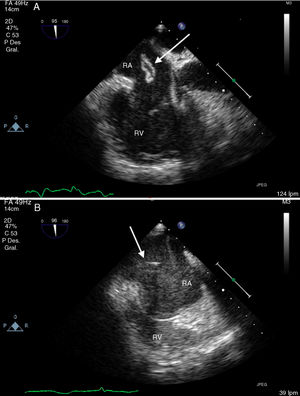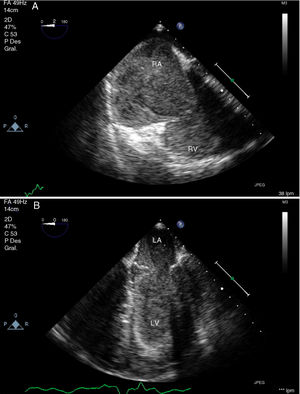A 44-year-old man was admitted to our ICU due to thoracic trauma with associated bilateral pulmonary contusion. He developed severe refractory respiratory failure (PaO2/FiO2<100) and hemodynamic instability secondary to hypoxemia. Due to the inability to oxygenate the patient, it was decided to begin with veno-venous ECMO therapy. During cannulation of the femoral vein, a large thrombus (white arrow) was observed in the right atrium passing through the tricuspid valve into the pulmonary artery (Fig. 1); suddenly, the patient suffered cardiac arrest in pulseless electrical activity (Fig. 2), requiring advanced CPR maneuvers, recovering spontaneous circulation once ECMO therapy begun (Video). He remained under ECMO for seven days, after which, it was withdrawn due to respiratory improvement. He presented full neurological recovery.
The Impact Factor measures the average number of citations received in a particular year by papers published in the journal during the two preceding years.
© Clarivate Analytics, Journal Citation Reports 2025
SRJ is a prestige metric based on the idea that not all citations are the same. SJR uses a similar algorithm as the Google page rank; it provides a quantitative and qualitative measure of the journal's impact.
See moreSNIP measures contextual citation impact by wighting citations based on the total number of citations in a subject field.
See more








